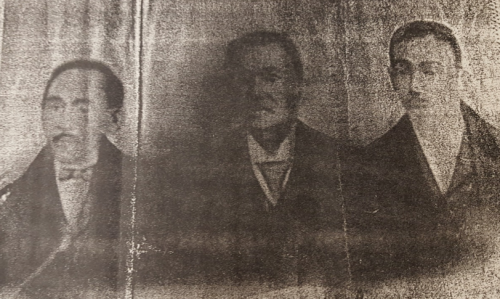North Charleston City Council and Mayor Keith Summey unanimously approved the contribution of $1,000,000 to the International African American Museum at Thursday night’s City Council meeting, assuring North Charleston’s rich African American history will be featured within the museum.
In particular, the history of Liberty Hill, South Carolina’s oldest free black community, will be showcased. Dating back to the post-Civil War, Reconstruction-era, Liberty Hill remains today a vibrant African American community within the City of North Charleston.
North Charleston Mayor Keith Summey stated, “this announcement marks the beginning of a great partnership with the International African American Museum and gives us a broader opportunity to tell our community’s rich African American history to an audience of visitors from around the world. Our history is not bound by city limits, and when our story is illuminated, our entire region benefits.”
Mayor Summey continued, “in North Charleston, we celebrate our diversity, and understand the importance of fully recounting the past. Through the International African American Museum, we have an opportunity to ensure generations to come fully understand North Charleston and Liberty Hill’s significant contributions to the community and the region.
On behalf of the International African American Museum, former Charleston Mayor Joe Riley stated, “this contribution from our neighbor, the City of North Charleston, affirms the vital mission of the International African American Museum.” He continued, “We are so grateful to have had Mayor Summey’s interest and leadership – and proud that members of North Charleston City Council voted unanimously to invest in what has been referred to as “one of the most important commemorative projects in American history” by Yale scholar and Pulitzer Prize-winning author Dr. David Blight.”
 Liberty Hill’s beginnings date back to 1864, as the Civil War raged on. Paul and Harriett Trescot, Free People of Color, purchased 112 acres of farmland north of the City of Charleston, in what is today North Charleston. Seven years later in 1871, during the Reconstruction Era, millions of African Americans struggled to start lives as free people. It was at that time that the Trescots sold one acre to St. Peters AME Church (still in operation today and the oldest church in North Charleston), and the remaining 111 acres to four freedmen, Ishmael Grant, Aaron Middleton, William Lecque, and Plenty Lecque.
Liberty Hill’s beginnings date back to 1864, as the Civil War raged on. Paul and Harriett Trescot, Free People of Color, purchased 112 acres of farmland north of the City of Charleston, in what is today North Charleston. Seven years later in 1871, during the Reconstruction Era, millions of African Americans struggled to start lives as free people. It was at that time that the Trescots sold one acre to St. Peters AME Church (still in operation today and the oldest church in North Charleston), and the remaining 111 acres to four freedmen, Ishmael Grant, Aaron Middleton, William Lecque, and Plenty Lecque.
Liberty Hill remained largely rural from 1900 until the 1930 when things began to change. By the 1940s there were dozens of new homes and businesses. With segregation laws of the Jim Crow South firmly in place, Liberty Hill became a thriving, self-sufficient community. There were businesses, grocery stores, gas stations, barbershops, dry cleaners, and a motel. For entertainment there was a movie theater, the famous Harlem Swing Club, restaurants, and a baseball field. During World War II, Liberty Hill was home to a USO for African American servicemen. Residents of Liberty Hill believed in the power of education and faith to elevate their lives. There were five churches in the community including the St. Peters.
In addition to the International African American Museum, the history of Liberty Hill will be featured in the Historical Display Room within the new North Charleston Transit Center at 4565 Gaynor Avenue, free to residents and travelers arriving in our community by train or bus. The exhibit should be complete by the end of the year.
North Charleston will utilize local accommodations tax funds for the museum contribution. In accordance with the State of South Carolina code of laws, municipalities can expend tourism-related funds in the geographical area of the county of municipality. Considering the international draw of the museum, the city would expect to receive significant revenues in return from tourists visiting the museum while lodging in North Charleston.
